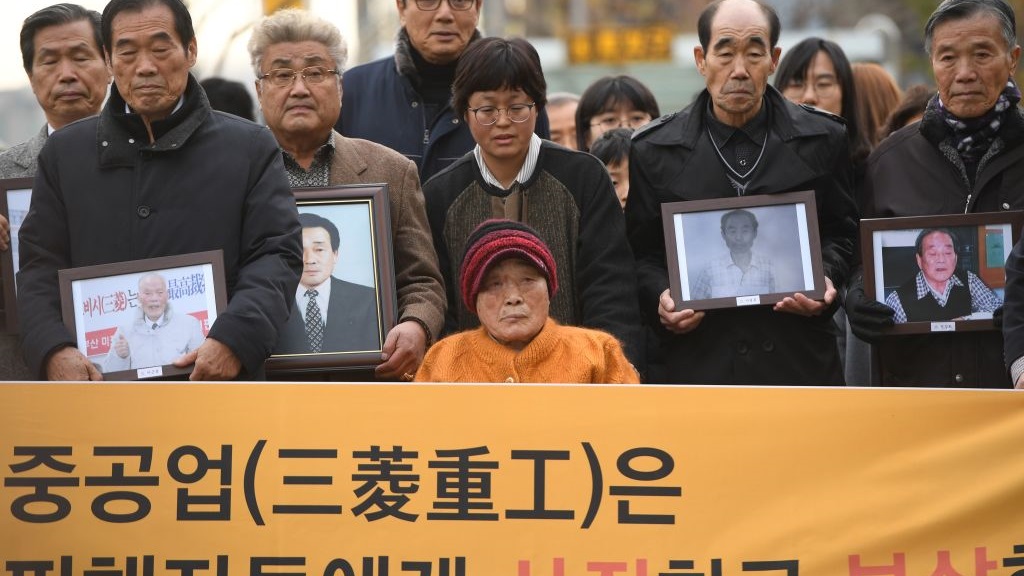A number of wartime forced labor victims continue to condemn South Korean officials’ plan to provide compensation through a domestic fund rather than seeking reparations from Japan.
The victims, who have been critical of the government since it revealed a compensation plan last month, now accuse officials of rushing the process to ease diplomatic concerns with Japan amid tense political relations between the two countries.
The compensation plan was initially released by Seoul’s Foreign Ministry earlier this year and laid out plans to pay victims with contributions made by South Korean companies. The announcement sparked immediate outrage from the victims, who demanded that reparations be paid by the Japanese corporations that forced them to work.
This latest development comes after years of legal battles involving South Korean victims, who have sought compensation for their forced labor during Japanese colonial rule over 70 years ago.
In a 2018 landmark decision, South Korea’s Supreme Court ordered two Japanese corporations, Nippon Steel and Mitsubishi Heavy Industries, to pay each victim between 100-150 million won (approximately $78,000-$116,000).
However, both companies have refused to comply with the court’s orders, and the plaintiffs have yet to receive any form of reparations.
Relations between the two nations have remained strained since the 2018 ruling. Japan has contended that a 1965 agreement between Tokyo and Seoul settled the matter of forced labor compensation. The agreement saw a payment of around $500 million in grants and loans.
The recent move by South Korean government officials to raise funds through a domestic foundation has prompted some of the victims’ legal representatives to speak on the matter.
Attorney Lim Jae-sung, who represents several of the victims and has previously spoken against the government’s actions, continued to criticize South Korean President Yoon Suk-yeol and his office for expediting the compensation…
Read the full article here





